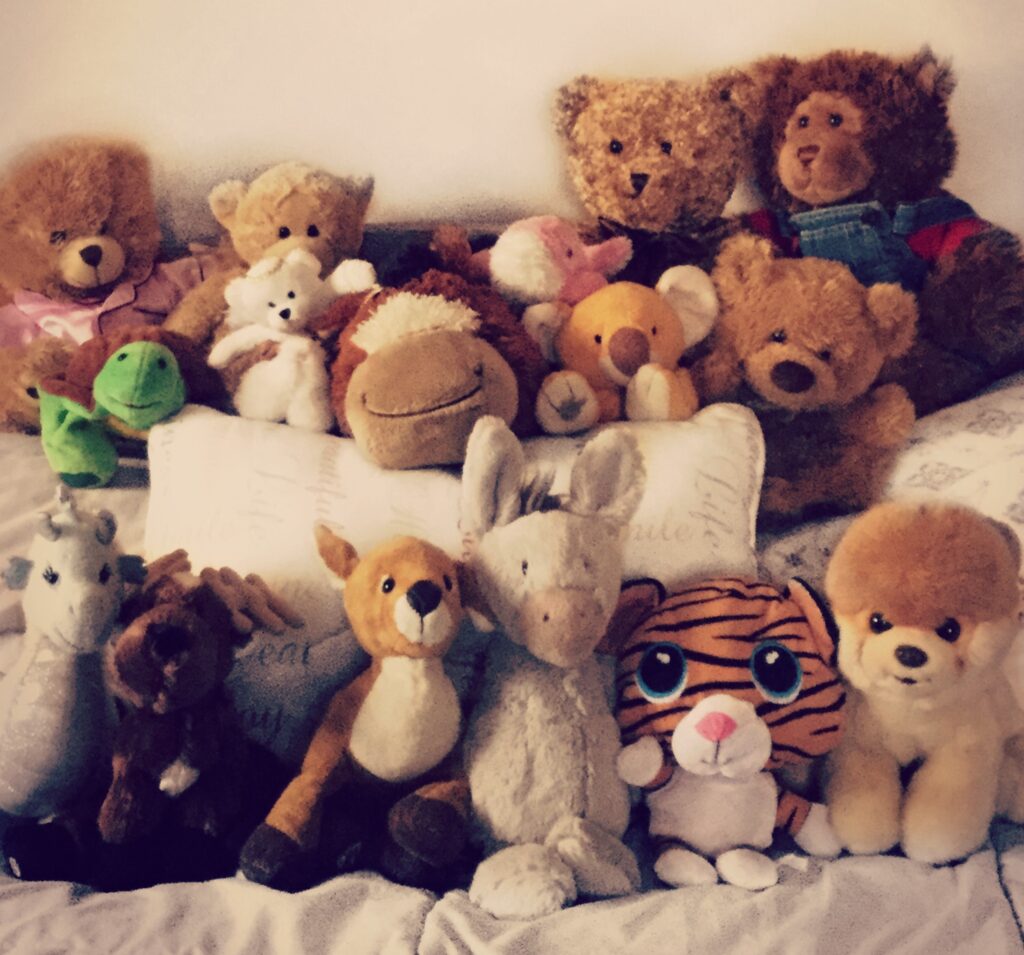The world of neuro-diversity can come with a number of quirks, in this article we explain the relationship between adults with autism and stuffed animals.
Autistic individuals and stuffed toys
For many individuals on the autism spectrum, the world can be overwhelming and full of sensory challenges.
In their quest for comfort and solace, some autistic people have found a unique source of emotional support and companionship: stuffed animals.
These cuddly and soft companions provide a safe space where they can express themselves freely and find respite from the complexities of everyday life.
Below, we will delve into why autistic adults may find comfort and joy in the presence of stuffed animals.
In addition we explain how these simple toys play an important role in their lives.
Emotional connections
Autistic adults often experience challenges in forming social connections and expressing emotions.
Stuffed animals can serve as valuable emotional outlets and in a way, reliable confidants.
These toys become steadfast companions who never judge, criticise, or question their emotions.
Through interactions with stuffed animals, individuals on the autism spectrum can freely express their feelings, thoughts, and fears.
With their silent friend they can foster a sense of acceptance and emotional connection that may be difficult to achieve with humans.

Sensory soothing
One of the key reasons why autistic adults may gravitate towards stuffed animals is the soothing sensory experience they provide.
The plush texture, gentle touch, and squeezable nature of stuffed animals can create a calming effect.
This can in turn end up helping to alleviate anxiety and stress.
In addition, many individuals on the autism spectrum have heightened sensory sensitivities.
The softness of a stuffed animal can offer a soothing touch that promotes relaxation and a sense of security.
Predictability
The world can be unpredictable and chaotic for autistic individuals, which can lead to anxiety and distress.
Stuffed animals offer a sense of predictability and stability in their lives.
These soft companions are always there, consistent and unchanging, providing a familiar presence that can be relied upon.
The routine of caring for a stuffed animal, such arranging their living space, or engaging in pretend play, can provide a comforting structure and a sense of control over their environment.
No need for verbal communication
Communication can be a significant challenge for autistic adults, and verbal expression may not always come easily to them.
Stuffed animals offer a unique channel for nonverbal communication.
Through imaginative play and interactions with their furry friends, individuals on the autism spectrum can practice social skills.
They can experiment with different emotions, and develop their interactions in a safe and non-threatening environment.
This process can build confidence and provide a foundation for improved communication in other areas of their lives.
Empathy
Stuffed animals can foster empathy and understanding in autistic adults. As they care for their furry friends, they develop a sense of responsibility and learn to consider the needs and emotions of others.
This experience can translate into their interactions with humans.
They can learn to transfer the empathy and understanding they have cultivated through their bond with stuffed animals into their relationships with friends, family, and the wider community.
Summary – Adults with autism and stuffed animals
For autistic adults, stuffed animals offer far more than mere toys.
They serve as cherished companions, providing comfort, solace, and understanding in a world that can often feel overwhelming.
The sensory benefits and predictability stuffed animals offer, make them an invaluable tool for individuals on the autism spectrum to navigate their unique challenges.
As we strive to create inclusive and empathetic societies, it is essential to recognise and embrace the unique needs of those with autism.
We also should respect the impact of these cuddly creatures in the lives of autistic adults, appreciating the comfort they bring and the therapeutic role they play.

